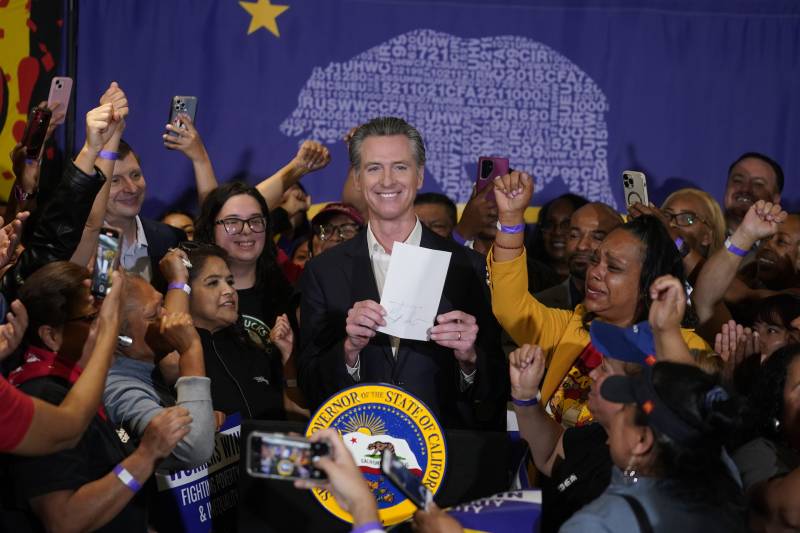But the law was staunchly opposed by the Save Local Restaurants Coalition, a group supported by fast-food corporations and franchisees, that threatened to put it before voters as a referendum next year, in what was widely expected to be an extremely costly campaign.
The replacement law that Newsom signed Thursday settles — for now, at least — the longtime fight between labor and business groups over how to regulate the industry. In exchange for higher pay, labor unions have dropped their attempt to make fast-food corporations liable for any workplace law violations committed by their franchise operators in California, an action that industry leaders said could have upended the business model on which the industry is based. Opponents of the law, meanwhile, agreed to drop their referendum.
Most fast-food restaurants in California are franchises, run by small business owners who buy the right to use the branding of specific fast-food companies, and sell their products.
Industry groups called the deal a “common sense” outcome that would, most importantly, preserve the state’s franchise business model.
“Signature of AB 1228 preserves the franchise business model in the state and solidifies the best possible outcome for workers, local restaurant owners, and brands,” Matthew Haller, president at the International Franchise Association, which represents franchise owners, said in a statement. “Common sense has prevailed, as franchising is responsible for creating opportunities for hundreds of thousands of people to become small business owners, and this agreement eliminates the existential threats our members faced.”
At Thursday’s signing, Mary Kay Henry, president of the Service Employees International Union, which helped negotiate the new deal, said the effort capped 10 years of work — including 450 strikes across the state in the past two years. The law, she said, will give some of the lowest paid workers in the state “a seat at the table” to push multibillion dollar corporations to improve job conditions.
“This is a true David and Goliath story and the Davids — and Davidas — won,” she said at Thursday’s signing event. “Once again, California is showing us what true international leadership looks like.”
Now, the labor focus will shift to low-wage health care workers in hospitals, dialysis clinics and other health care facilities. Lawmakers passed a separate bill earlier this month that would gradually raise that group’s minimum wage to $25 per hour over the next decade. Newsom, who did not help negotiate that bill, has yet to say if he intends to sign it.

